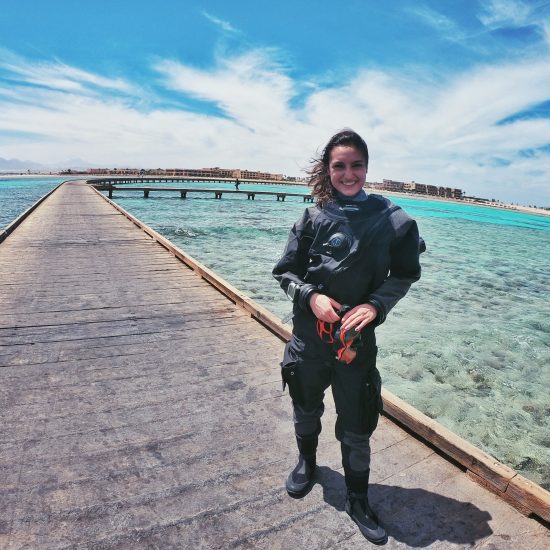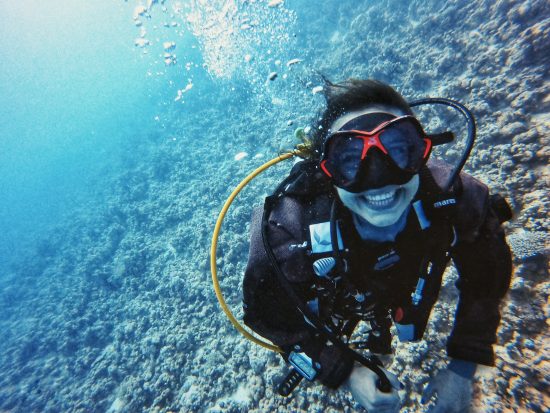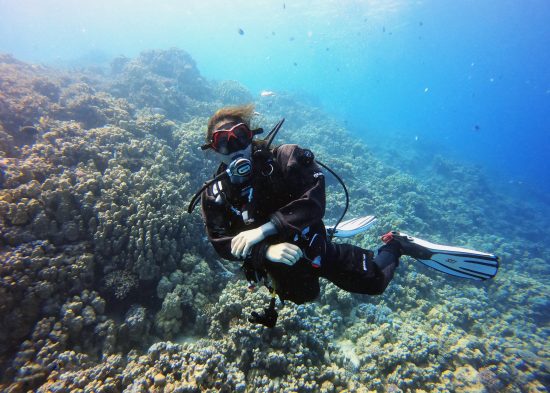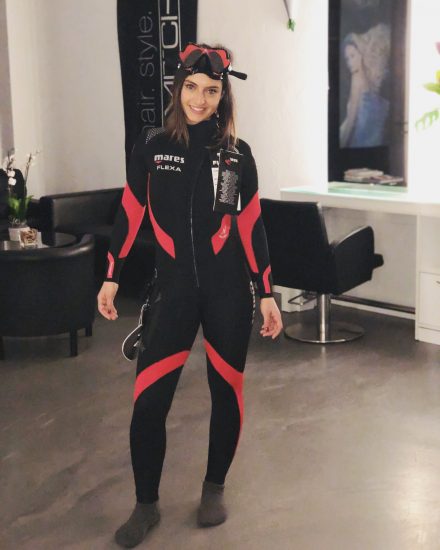





Hello everybody and welcome to my new blog! In my last blog, I talked about why you should go on a scuba diving course whilst on vacation.
This time, I’m going to help you to find the right suit!
Who hasn’t been confused about choosing the right suit for their dive needs?!
The best suit would be one that is not too thick as those have more buoyancy. With a thicker suit you need more weights, and donning a thick suit is not as easy as a shorty, usually! Later I will tell you why I say 'usually'...
Firstly, you need to think about what kind of temperatures you will need the wetsuit for - this is, of course, more important than just how easy it is to don and doff. Are you going to dive in tropical waters or are you going to dive in a cold lake for example? There are so many different divespots and of course different seasons to consider where you would need different suits.
For water temperatures from 27-32°C, a shorty, or 3mm suit, is really enough. Here it’s up to you if you go with the shorty or longer suit. I myself always prefer to have a longer suit because it protects me from sun or animals which I don’t want to touch. Sometimes even just a rash guard is enough. If you want, you can wear a long rash guard under a shorty so that you are protected.
For temperatures from 23-26°C you can wear a 5mm wetsuit. If you want to dive in a waters which are 20- 23°C, I recommend an 8mm wetsuit like the Flexa Therm or a 6mm semi-dry suit. For temperatures under 20°C you should wear a dry suit.
Now I’m going to tell you why it’s not always difficult to don a longer suit!
Since having my Mares Flexa wetsuits, I know how comfortable it can be to wear a long suit. Because of the different thicknesses in different parts of the suit, it feels like you have a second skin. In the places where it should keep you warmer, it’s thicker, and in the places where you need flexibility, the material is thinner. For me, it’s the perfect suit, and as I work in the diving center and see a lot of guests who have Mares Flexa suits, I know that it's very popular.
Another piece of advice is to always have a hood with you if you get cold quickly. You lose most heat from your head. Maybe it’s not the most stylish solution, but it will mean you have more fun on your dives. Nothing is more annoying than freezing whilst diving. If you already have a 5mm suit and you are going to dive in cold water, you can also upgrade your gear with a hooded vest like the Mares Flexa Vest.
Another factor when chosing the right suit is if you are diving a lot, for example as a divemaster, or are you just diving on holiday? I learned that a professional diver who dives the whole year becomes much colder than a diver who just dives for 1- 2 weeks whilst on holiday.
These are my personal guidelines. It always depends from person to person, but I hope I can help you a bit with my blog!
Tell me about your experience with your dive suits, and if you have any questions don’t hesitate to ask me!
 Semra
Semra 27th May 2019
27th May 2019